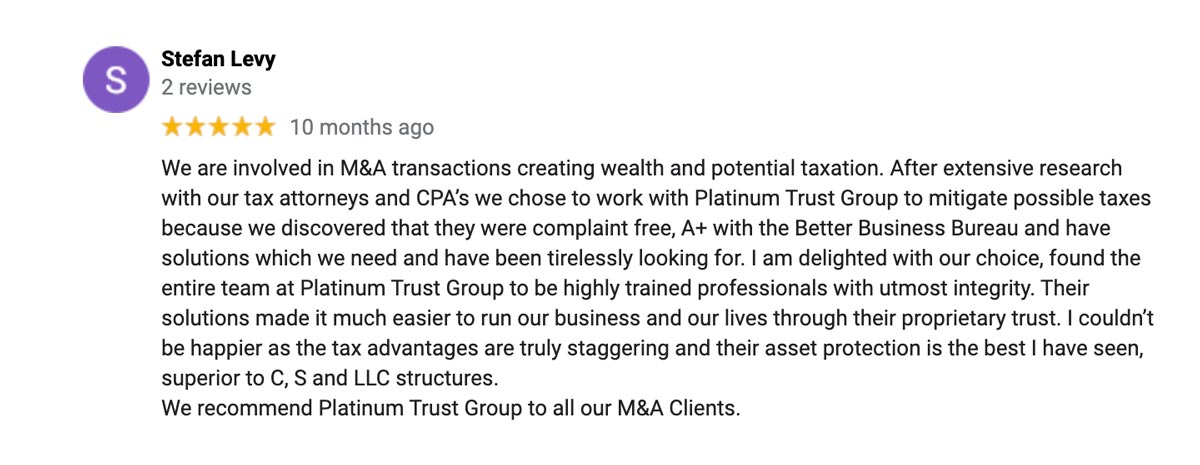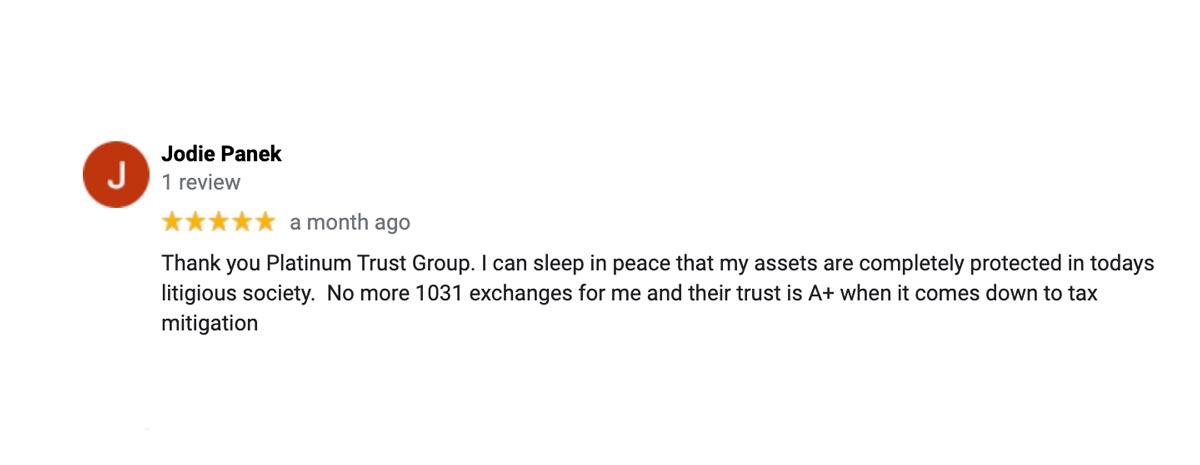Legal Protection & Tax Mitigation
Platinum’s Trusts utilize a one-of-a-kind proprietary trust. It is able to legally, per the IRS trust tax code, defer taxes in perpetuity on both business and personal tax liability. Our Trust defers and minimizes income and estate taxes to the fullest extent the IRS allows.
Platinum Trusts vs Revocable Living Trusts
Unlike the Platinum Vault Trust, corporations, entities and Revocable Living Trusts are statutory and subject to legislative control and taxation. Income in a corporation or entity is taxable in the year it is earned. Likewise, income earned by endowments to a Revocable Living Trust (the most common type of Trust that many people have) are also taxable in the year they are earned. But income earned in a Platinum Vault Trust is not necessarily taxed in the year that it is earned, provided it did not distribute to any beneficiary in that tax year.
Note- Platinum Trusts have the ability to incorporate an existing Revocable Living Trust direction into it’s Trust.
Capital Gains Treatment Using Platinum Trusts
The courts ruled that a Spendthrift Trust Organization is not illegal even if formed for the express purpose of reducing or deferring taxes.
In Weeks v. Sibley DC 269, 155, Edwards V. Commissioner. 415121532 10th Circ. (1969) & Phillips v. Blanchard 37 Mass 510
Passive Income Treatment
The Platinum Vault Trust helps to mitigate taxes on passive income. When a properly constructed Platinum Trust earns passive income, if that income is added to the corpus of the Trust and declared by the Trustee as “Extraordinary Dividends”, the income is then reported on a 1041 Tax Return in the year it was earned. But, pursuant to Internal Revenue Code, any taxes that might otherwise be due on that tax year are instead deferred in perpetuity.
Edison California Stores, Inc. vs McColgan. 30 Cal 26472.183 P2d 16. ruled that persons may adopt any lawful means for the lessening of the burden of income taxes. In The Department of the Treasury, IRS Handbook for Special Agents § 412, Tax Avoidance Distinguished from Evasion, it states; “Avoidance of Taxes is not a criminal offense. Any attempt to reduce, avoid, minimize, or alleviate taxes by legitimate means is permissible.
In Weeks v. Sibley DC 269£, 155, Edwards V. Commissioner. 41512£!, 532 10th Cir. (1969) and Philips v. Blanchard 37 Mass 510, the courts ruled that a Spendthrift Trust Organization is not illegal even if formed for the express purpose of reducing or deferring taxes.





